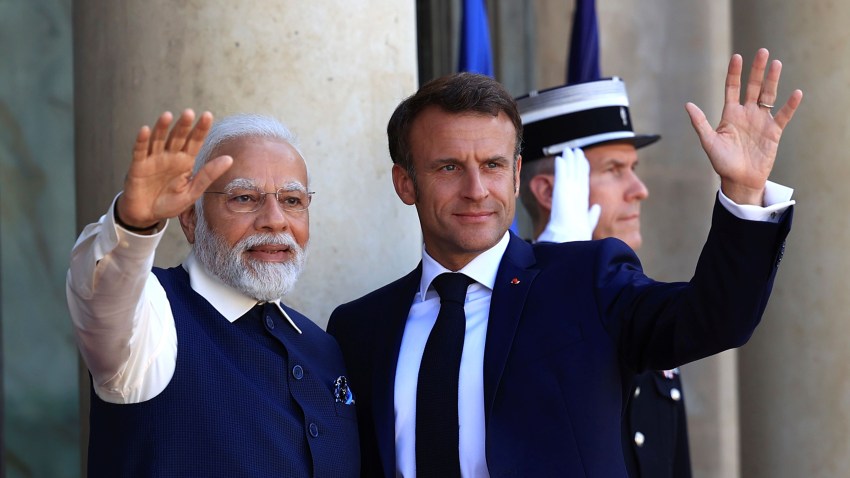On Jan. 26, French President Emmanuel Macron will visit New Delhi, where he will be Prime Minister Narendra Modi’s guest of honor for India’s Republic Day celebrations. In some ways, Modi owed Macron an invite, as he was himself the guest of honor at last year’s Bastille Day festivities in Paris. But the invitation is no mere courtesy. Historically, no country has been more represented at India’s Republic Day than France, with Macron becoming the sixth French leader to be bestowed the honor since 1976. The invitation is also a testament to the strength of the bilateral relationship today.
France and India’s partnership is above all grounded in strategic affinities, with a shared preference for a multipolar international order, in which both aspire to be “balance shapers” rather than followers. This shared vision is best encapsulated in the concept of “strategic autonomy,” which both countries use to describe their postures. This quest for independent agency is not new. During the Cold War it led then-President Charles de Gaulle and then-Prime Minister Jawaharlal Nehru to champion non-alignment in Europe and what is now dubbed the “Global South,” respectively. Today, in the spirit of their illustrious forebearers, the “allied but not aligned” Macron and the “multi-aligned” Modi keep striving to establish themselves as leaders of Europe and the Global South, in order to amplify and project their countries’ influence onto the global stage.
At the bilateral level, this has translated into Paris establishing itself as a key supplier and partner to New Delhi in critical domains. It is now the second-largest defense exporter to India, after Russia, including through high-profile and big-ticket sales like Rafale fighter jets and Scorpene submarines. They also have plans to jointly develop a combat aircraft engine. Beyond defense ties, France and India have for decades developed technological cooperation in the nuclear and space domains, which they are now extending to new areas such as digital public infrastructure and critical technologies, among others.

